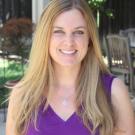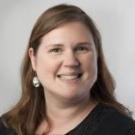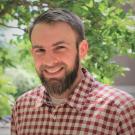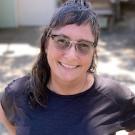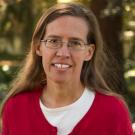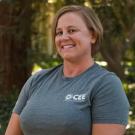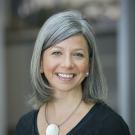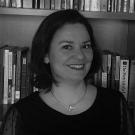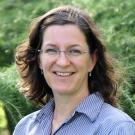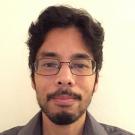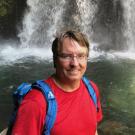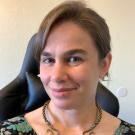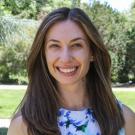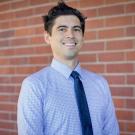Day 1 Agenda
Wednesday, September 1
|
8:45am-9:00am |
Opening Remarks 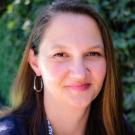
Cynthia Carter Ching, Interim Vice Provost and Dean, Undergraduate Education |
| 9:00am-9:50am |
Keynote Presentation National trends in assessing student learning during turbulent times: What’s worth keeping? Gianina Baker, Director, National Institute for Learning Outcomes Assessment As we enter into the next academic year, join Dr. Gianina Baker in thinking differently about the quarters ahead, what lessons we learned this past year, and what we need to move forward. Using national trends, Dr. Baker will help attendees explore what’s worth keeping through the topics of learning outcomes, equity and assessment, assignment design, and more. -- 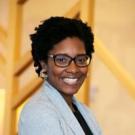
About the presenter: Gianina Baker, Ph.D., provides leadership and directs research specific to the assessment of student learning at colleges and universities, primarily under the Lumina Foundation grants, at NILOA. Her main research interests include student learning outcomes assessment at Minority Serving Institutions, access and equity issues for underrepresented administrators and students, assessment in athletics, and higher education policy. |
| 9:50am-10:00am |
Break |
| 10:00am-10:50am |
Checking in on student learning: Lessons from preparing students for online exams Rob Furrow, Wildlife, Fish, and Conservation Biology As courses shifted online at the start of the COVID-19 pandemic, instructors and students alike were anxious about preparing for online exams. In this workshop, we will explore examples of how courses (particularly large enrollment) were adjusted to prepare students for online exams, with an emphasis on ways to frequently gauge student learning. This will be an interactive workshop designed to help instructors make practical adjustments to their courses of all sizes. -- 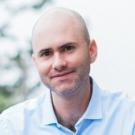
About the presenter: Rob Furrow is an Assistant Professor of Teaching in Wildlife, Fish, and Conservation Biology. His research and teaching focus on inclusion, equitable approaches to assessing student learning, and best practices for teaching introductory quantitative material. When he’s not in the classroom he is often birding at Putah Creek or baking pizza. |
| 10:50am-11:00am | Break |
| 11:00am-11:50am |
Checking in on student learning: Lessons from student-led assessment Mark Verbitsky, Political Science This workshop will explore ways to get students involved in assessing their own learning, focusing on peer review exercises (students assessing each other’s learning) and learning reflections (students assessing their own learning). In addition to identifying the benefits (and potential missteps) of these activities, the workshop will provide participants with examples and ideas on how they can incorporate student-led assessments in their own classes. -- 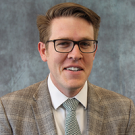
About the presenter: Mark Verbitsky is an Assistant Professor of Teaching in the Political Science department, teaching classes on constitutional law and American political theory. Among his pedagogical interests are teaching students learning skills, including undergraduates as part of the teaching team (learning assistants), and integrating non-knowledge-based learning outcomes into his courses. |
| 11:50am-noon |
Break |
| noon-12:50pm |
Student Panel The best (and worst) of assessment during turbulent times Kate Andrup Stephensen, University Honors Program, and Melinda Livas, STEM librarian, University Library, Moderators This panel brings together students from all four undergraduate colleges to share what they would like faculty to know about assessing student learning in these chaotic times. -- About the moderators: 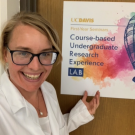
Kate Andrup Stephensen is Associate Director for First-Year Seminars (interim) and the University Honors Program third & fourth-year advisor. Kate started her professional career as a high school teacher before moving into higher education administration at the University of Virginia. She started working at UC Davis in 2020. She has a B.A. in history from Northwestern University and an M.Ed. in Curriculum & Instruction from the University of Virginia. 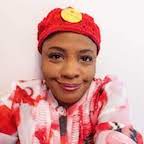
Melinda Livas is a STEM librarian at Shields Library and serves the areas of Engineering, Mathematics, and Statistics. Her research areas include information literacy and instructional technology. She has an M.S. in Instructional Design and an MLIS in Information Science. |
| 12:50pm-1:00pm |
Closing Remarks 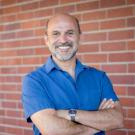
Marco Molinaro, Assistant Vice Provost for Educational Effectiveness |
|
NEW! 4:00pm-5:15pm |
BONUS Session!Surveillance, cheating, and academic integrity: What can we leave behind? Phillip Dawson, Professor and the Associate Director of the Centre for Research in Assessment and Digital Learning (CRADLE), Deakin University, Melbourne, Australia Throughout the pandemic, markets for cheating services for students and anti-cheating technologies for colleges and universities have boomed. As we move into a new academic year, can we leave all of that behind? This presentation provides a research-informed look at what we’ve learned about addressing cheating and promoting academic integrity from the sudden global shift to online assessment and provides a framework and strategies for integrating what we have learned. -- 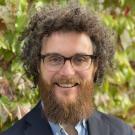
About the presenter: Phillip Dawson is a Professor and the Associate Director of the Centre for Research in Assessment and Digital Learning (CRADLE) at Deakin University, Melbourne, Australia. Phill researches assessment, focusing on cheating, feedback and assessment design. He has published some of the first empirical studies into the security of online exams, the detection of contract cheating, and the effectiveness of legal approaches to stopping cheating. His most recent books are Defending Assessment Security in a Digital World (Routledge 2021) and the co-edited Re-imagining University Assessment in a Digital World (Springer, 2020). |
Day 2 Agenda
Thursday, September 2
|
